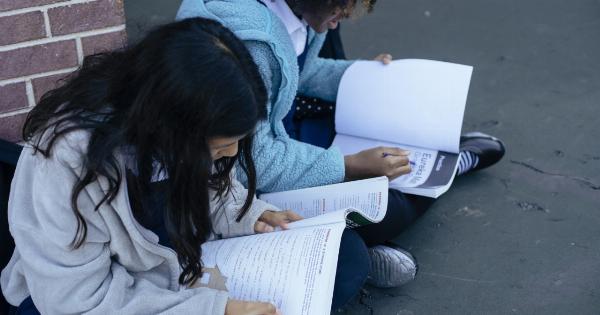Bullying is a pervasive issue in schools that can have detrimental effects on a child’s well-being and academic performance.
As parents, it is crucial to address bullying behavior and equip our children with the necessary tools to navigate these difficult situations. In this article, we will explore effective parenting solutions for addressing bullying behavior in children at school, as recommended by renowned Psychologist Alexandra Kappatou.
Understanding Bullying Behavior
Before we delve into the solutions, it is essential to understand what constitutes bullying behavior. Alexandra Kappatou defines bullying behavior as a repeated aggressive behavior that involves a power imbalance.
It can manifest in various forms such as physical, verbal, or relational aggression.
Building Open Communication Channels
One of the most important aspects of addressing bullying behavior is to establish open communication channels with your child. Encourage them to share their experiences, fears, and concerns without judgment.
By actively listening and validating their feelings, you create a safe space for them to open up.
Teaching Empathy and Respect
Empathy and respect are core values that can help combat bullying behavior. Teach your child the importance of understanding others’ perspectives and treating everyone with kindness and respect.
Encourage them to stand up for others who are being bullied and to report any incidents they witness to school authorities.
Developing Resilience
Bullying can have a significant impact on a child’s self-esteem and overall well-being. Help your child develop resilience by fostering a sense of self-worth and emphasizing their strengths.
Encourage them to engage in activities they excel at and offer support when they face challenges.
Teaching Assertiveness
Assertiveness is a valuable skill when it comes to dealing with bullying behavior. Teach your child how to assert their boundaries and express themselves without resorting to aggressive behavior.
Role-play different scenarios and help them practice assertive responses.
Encouraging Peer Relationships
Having a strong support system can greatly reduce the likelihood of being targeted by bullies. Encourage your child to develop positive relationships with their peers.
Support their participation in extracurricular activities and help them foster friendships based on trust and mutual respect.
Collaborating with School Authorities
Effective collaboration with school authorities is crucial when addressing bullying behavior. Communicate with your child’s teachers and the school administration to ensure they are aware of any incidents your child is facing.
Work together to develop strategies to prevent and address bullying within the school environment.
Modeling Positive Behavior
As parents, we serve as role models for our children. It is important to model positive behavior and demonstrate empathy, respect, and kindness in our interactions with others.
Children learn by observing, and by setting a good example, we can instill these values in them.
Providing Emotional Support
Bullying can have a significant emotional impact on children. Offer your child emotional support by providing a safe space for them to express their feelings.
Be attentive and validate their experiences, reassuring them that they are not alone and that you are there to support them.
Monitoring and Supervision
Regularly monitor and supervise your child’s online activities and social interactions. Cyberbullying has become increasingly prevalent, and it is crucial to stay vigilant.
Familiarize yourself with the platforms your child frequents, and teach them about online safety and responsible digital citizenship.
Seeking Professional Help if Needed
If your child continues to experience significant distress due to bullying behavior, it may be beneficial to seek professional help. A trained psychologist or therapist can provide additional support and strategies for addressing the issue effectively.
Conclusion
Addressing bullying behavior in children at school requires a multi-faceted approach.
By incorporating the parenting solutions recommended by Psychologist Alexandra Kappatou, we can create a supportive and empathetic environment that promotes respectful interactions among children. Remember to establish open communication channels, teach empathy and respect, foster resilience, and seek collaboration with school authorities. With these strategies in place, we can empower our children to navigate bullying behavior confidently.




























